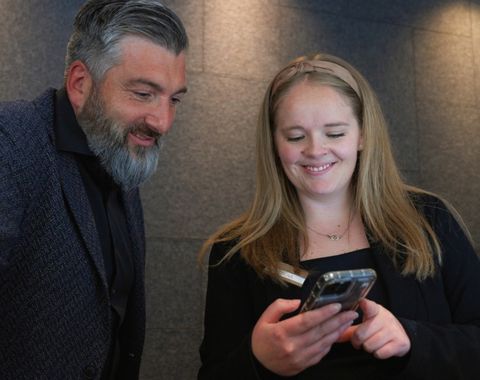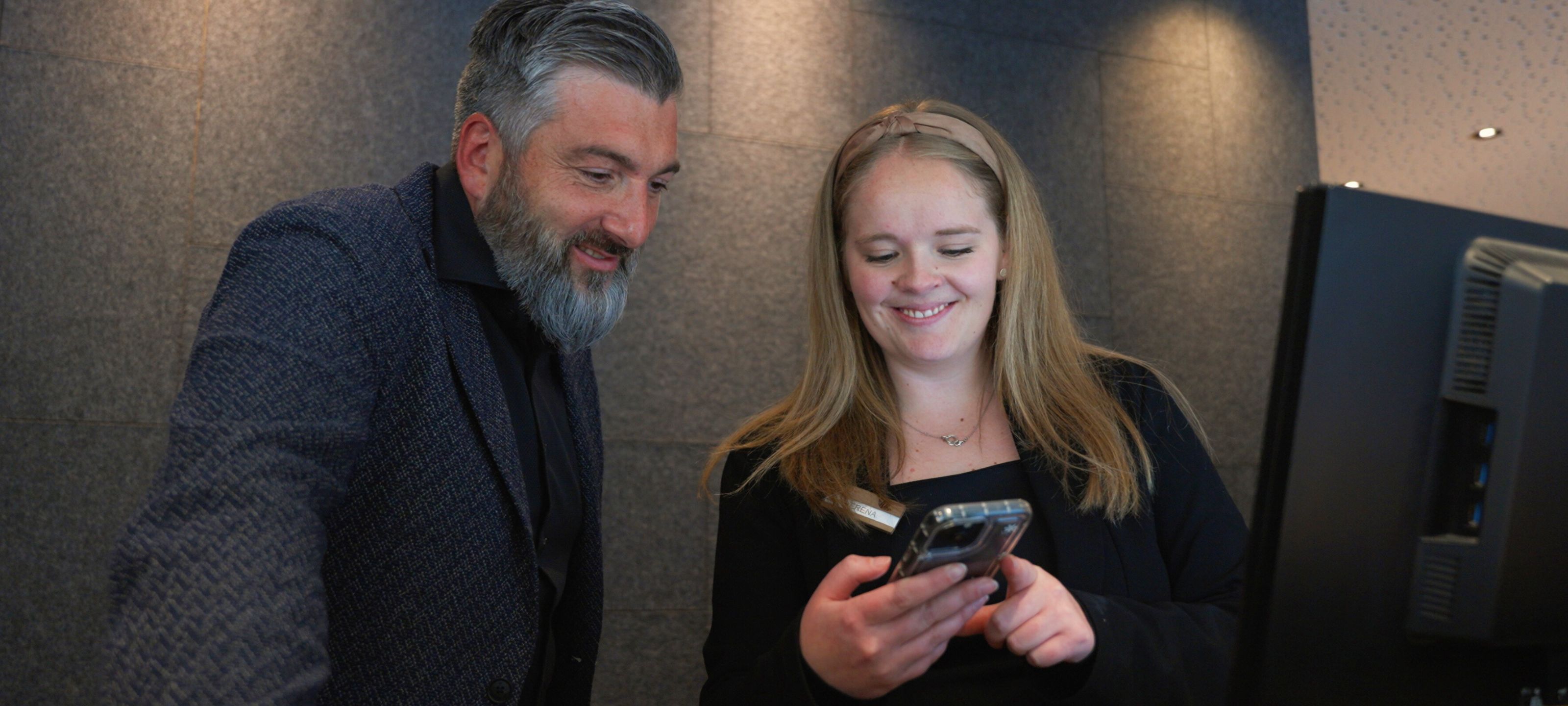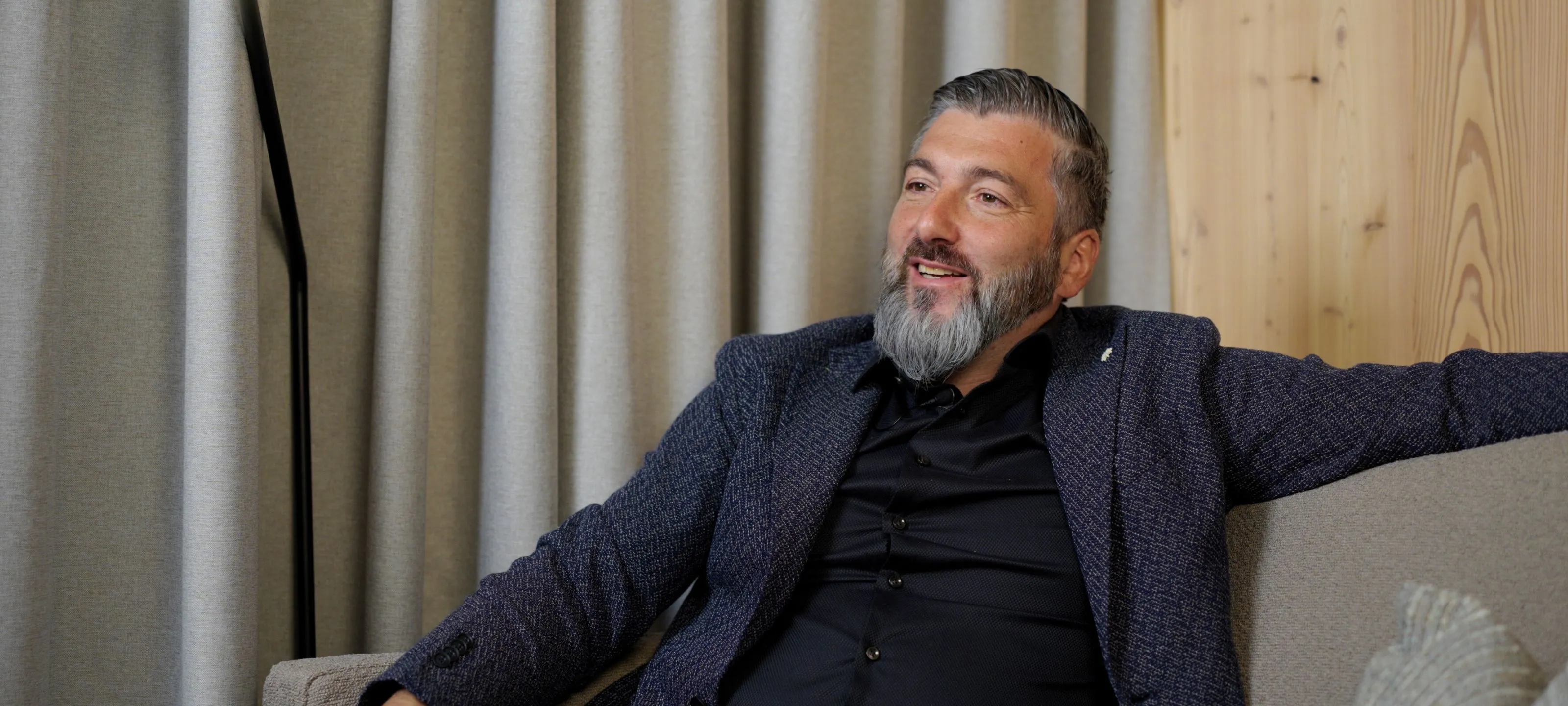.webp)
Interview with Prof. Wolfgang Arlt, China Outbound Tourism Research Institute (COTRI) – Part 2

In the second part of the conversation with Prof. Dr. Wolfgang Arlt, Director and Founder of COTRI, you will learn how digital transformation is impacting the international tourism industry and what trends can be expected in the future.
The diversity of travel motivations
<div class="article_quote"><div class="article_quote_contain"><div class="article_quote_quote">"Tourist destinations must be prepared in advance to enable Chinese visitors to spend their money in the shortest time possible."</div><div class="article_quote_name u-text-style-main"> </div></div></div>
In the first of this two-part interview with Prof. Wolfgang Arlt (Founder and Director of COTRI, the leading institute in Market Studies and Strategic Development of the Chinese outbound tourism market), we discussed Chinese travel culture and their reasons for travelling abroad. The second part of the interview focuses on the potential advantages and challenges, digitization of the industry and development of the Chinese travel market in Europe.
<h3 class="interview-question">What are the potential advantages and challenges faced by the Chinese hospitality industry in Europe — and specifically in the Alpine regions?</h3>
Things have changed a lot since the institute was founded 15 years ago. Today, everyone realizes that China is an important origin market for tourism. We also have to understand that with 80 million travellers, there’s no stereotypical Chinese tourist. We might ask if Chinese travellers abroad want to eat Chinese food or if they might prefer European food. The answer is always the same: "It depends" A wealthy farmer on a once-in-a-lifetime trip to Europe would probably wish to try European food, while remaining on a basically Chinese diet. This is because of concerns that European food would cause him stomach problems, which could interrupt his journey. Someone travelling out of China for the first time who doesn't speak any English will have completely different needs than someone who studied at Harvard for five years and is working for an international company. Someone from Beijing, where the weather is similar to North Germany, would appreciate a destination with sunshine in winter and warmer temperatures. But someone from the south of China who is used to plenty of sunshine would not be much of a sunseeker! So, geography also plays a part.Chinese tourists wish to experience as much as they can, in the shortest time possible. A “local experience” would perhaps include a 20-minute horse-drawn sleigh ride through the forest captured on drone footage, or a two-hour yodel course with a diploma. Chinese travellers who travel to Europe are willing to spend, but are short of time!
<h3 class="interview-question">From your previous comments, it’s clear that there isn’t a stereotypical Chinese traveller.”.</h3>
Their different geographical conditions in China provide one explanation. People from the north and the south of China are as different as a Norwegian and a Portuguese. Also, the more travel experience they have, the fewer obvious choices there are: they should decide whether to stay in a 5-star luxury hotel, a more traditional hotel or in a B&B. And that’s the challenge for tour operators. We have to be open-minded and understand that it makes no sense in trying to conquer the Chinese tourist market as a whole. As a hotelier, you have to ask yourself: “What do we offer? Are we primarily a family hotel, do we focus on culture, or do we rely more on recreational sports tourism?”
<div class="article_quote"><div class="article_quote_contain"><div class="article_quote_quote">"The Chinese tourist market has developed so fast that we Europeans have trouble keeping up."</div><div class="article_quote_name u-text-style-main"> </div></div></div>
Digital expectations
<h3 class="interview-question">Would you say that the main challenge in the Chinese travel sector is diversification and segmentation?</h3>
Yes, and to that I would add the challenge of adjusting to the speed at which the market is developing. Take methods of payment as an example: until recently, we believed that the Chinese don’t use the usual credit cards – only UnionPay credit cards. But even that’s a thing of the past. Now everyone’s paying by smartphone using Alipay and WeChat-Pay. When it comes to social media communications we thought that Sina Weibo was the best platform, but now everyone’s switched to WeChat. And the elite has already moved to Douyin/TikTok, which is currently the most popular Chinese social media app. The market is changing so fast that we in Europe have difficulty keeping up. To those who say we should take on the entire Chinese market, I’d say that’s a very superficial perspective, which we at COTRI are trying to change.
<h3 class="interview-question">Do you see any market potential specifically in the Alpine region?</h3>
The clean air and unspoilt nature in general, are the main attractions. Most of the wealthier class live in big cities of 15 – 25 million inhabitants where the pollution is extremely bad, and there are very few green spaces and almost no bird life. The Chinese come to the Alps primarily to experience unspoilt nature, which is reason enough, and Alpine tourism is well suited to that.
<h3 class="interview-question">How does this fit the need to experience as much as possible in the shortest time? </h3>
I think that organized activities are the most likely answer. Taking Chinese tourists on a 20-minute mountain hike isn’t enough. There must be some action, such as a gondola ride, bungee jumping, riding on a horse-drawn sleigh or something else along those lines.
<h3 class="interview-question">Would you set up a helicopter company to ferry rich Chinese from one place to the next on a two-week package? -</h3>
Two weeks is still too long. At the most, they’d have one week or rather, three days, maybe after attending some big trade fair. That’s more realistic.
<h3 class="interview-question">So, you’d fly them from one venue to the next, through different scenic locations in search of thrills?</h3>
Look, we aren’t talking about showing them the "biggest firework display in the world". Show them “cows being milked” or "how South Tyrolean farm bread is baked". A farmer's wife would show them how to bake bread in the traditional way, with some participation. In order not to lose time unnecessarily, the demonstration has to be well-planned and methodically presented – like on a TV cooking show. Bake the bread, take photos and present visitors with a South Tyrolean farm-bread baker’s course diploma. Capture the event on video and let them take a recipe to try back home. The mixture is also available online on Alibaba.
<div class="article_quote"><div class="article_quote_contain"><div class="article_quote_quote">"The point is: the destination must be prepared and have something to offer for the Chinese tourist to spend their money."</div><div class="article_quote_name u-text-style-main"> </div></div></div>
<h3 class="interview-question">Alibaba and WeChat are probably not yet widely used in the Alpine regions, and I also see a problem with cashless payments...</h3>
Alibaba and WeChat are already widespread in the major tourist hot spots. This is one of the reasons why Chinese tourists visit bigger cities like Munich and not Augsburg, where AliPay isn’t accepted yet. What matters is that payment systems must be up and running at tourist destinations, allowing the Chinese to pay for goods and services. Many of them go back home with money left over from their holiday, and there are several reasons for this. Perhaps they didn’t find anything of interest, or maybe the shops were closed. They didn’t find a suitable gift to thank the boss for giving them time off to go on vacation.
<h3 class="interview-question">How else does digitalization affect Chinese travellers abroad?</h3>
When it comes to accommodation, the Chinese are very sensitive to prices and always do research on the internet before committing themselves. Once they’ve reserved a room at a hotel, they’re willing to spend money on additional services. But if they see a notice advertising massages, which can only be booked 24 hours in advance, that won’t work. For a guest on a one-night stay, decisions are necessarily ad hoc. As a hotelier, you need to be able to connect with your Chinese clients using a real time app such as WeChat. This shows the client which masseuse is free at any given moment, for which there’s a 10% discount if he/she can reach the spa within the next ten minutes. It’s less important if the massage costs € 60 or € 80. Restaurants in China work like this: while on my way in a taxi, I order via the app, so that just as I get to the restaurant the food is ready to be served. Chinese simply don't want to waste time waiting. Ordering something by tablet or smartphone is generally more accepted in China. The Chinese are open to technological innovations that make life easier: paying for a taxi by smartphone, face recognition in a hotel, on a ski lift or just shopping online.
<div class="article_quote"><div class="article_quote_contain"><div class="article_quote_quote">"Chinese people will never pay € 105 for a room if they know they can get it for € 100. But once they get there, they don't skimp on additional services."</div><div class="article_quote_name u-text-style-main"> </div></div></div>

Successful development of the Chinese market
<h3 class="interview-question">How can this very interesting Chinese tourist market be opened up for Europe and in the Alpine regions?</h3>
There’s no easy answer to that. First of all, you need to consider what is special about your hotel and region. What do I have to offer? What’s my USP? Maybe, a celebrity once stayed here. Secondly, consider if you need to partner with someone: a local tourist association, an events agency or some specific organization to help “create an experience”. Many tourist businesses believe that tourism from China can be incentivised by offering limited advantages, such as pricing. For example: I have a standard room priced at € 100 and the junior suite costs € 180. When the Chinese guest checks into the hotel to occupy his standard room, I offer him an upgrade to the junior suite for an extra € 50. Most of the guests will take the upgrade with the following consideration: "If the original price of the junior suite was € 180, and now I can get it for € 30 less, that’s a bargain! Besides, if I turn it down, they’ll think I can’t afford it! Chinese tourists will never pay € 105 for a room if they get it for € 100. But once they get there, they won't skimp on added-value services.
<h3 class="interview-question">What kind of support services can COTRI offer European tourist operators?</h3>
We offer a training program for individual enterprises that we’ve developed in conjunction with the Hong Kong Polytechnic University that specializes in the Asian hotel industry. There are eight modules lasting 90 minutes each, which can be completed online, with examples of best practices. We also offer market research and “netnography”. This refers to the topics of discussion on the Chinese social media platforms and community groups. This is by far the best unfiltered content available. We’re also involved in strategic development, including which industry trade fairs to visit, identifying key opinion leaders to reach out to, and the way a tourist destination should communicate in general.
<h3 class="interview-question">Do you also support product development?</h3>
Yes, that’s our stock in trade. We’re usually approached to help businesses with marketing and finding distribution partners. When I ask them to show me their product, I might take the example like the helicopter tours, and tell them: “Go full-blast on marketing the experience. Record the trip showing the client on video and in photos, so they can prove to those back home that they’ve really done all this in person. A video just showing the beautiful scenery from a helicopter is of no use at all. And instead of flying over three cities, show them one city, fly over terrain and over a spectacular waterfall in the region. If possible in three different types of helicopters and, at the end of the tour, give them each a certificate of attendance.
<div class="article_quote"><div class="article_quote_contain"><div class="article_quote_quote">"Businesses wonder about which social media platform to use for messaging, but too few give enough thought to the message."</div><div class="article_quote_name u-text-style-main"> </div></div></div>
<h3 class="interview-question">Do you also take care of distribution marketing?</h3>
We create contacts, develop narratives and assist with product development and strategy. But we leave implementation to the specialists. Depending on your goals and the size of your budget, we can refer you to the appropriate social media marketing agencies. Many operators ask which social media platform they should use, but few give enough thought to the actual message they wish to convey. The message I convey to my Western clients is different from European destinations for the Chinese market.
<h3 class="interview-question">As an academic in this field, do you encourage your students to visit China?</h3>
Yes, of course, you learn something about yourself and realize how much of your own behaviour is socially determined. In traditional Chinese society, punctuality is sometimes equated with stupidity, because they believe that it’s impossible to decide your priorities in advance. Even saying "thank you" to friends might be a mistake!
For part two of the interview, click here.







.jpg)

.jpg)



.webp)
